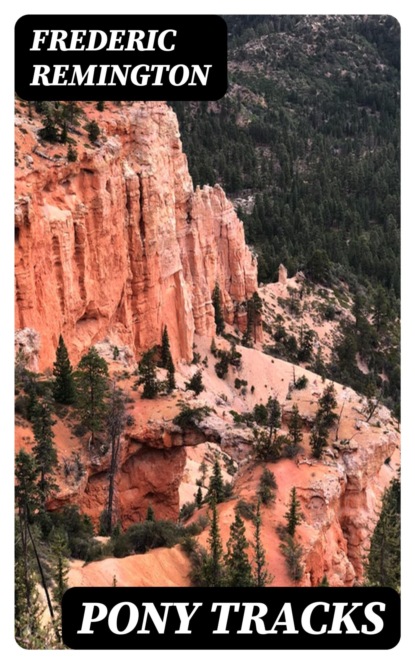Umfang 180 Seiten
Pony Tracks
Über das Buch
What a contrast between soldiers in field and soldiers in garrison! Natty and trim—as straight as a sapling, with few words and no gestures—quite unlike those of two days, or rather nights, ago, when the cold froze them out of their blankets, and they sat around the camp-fires pounding tin cans and singing the Indian medicine song with a good Irish accent. Very funny that affair—the mixture of Cheyenne and Donnybrook is a strange noise. The last stage from Custer to the railroad is thirty-five miles and a half, which we did with two relays, the latter half of it in the night. There was no escort—only two orderlies and the general—and I pattered along through the gloom. The clouds hung over the earth in a dense blanket, and the road was as dim as a Florentine fresco; but night nor cold nor heat can bring General Miles to a walk, and the wild charge in the dark was, as an experience, a complete thing. You cannot see; you whirl through a cañon cut in the mud; you plough through the sage-brush and over the rocks clatter and bang. The general is certainly a grim old fellow—one of the kind that make sparks fly when he strikes an obstacle. I could well believe the old Fifth Infantryman who said «he's put many a corn on a dough-boy's foot,» and it's a red-letter day for anyone else that keeps at his horse's heels. You may ride into a hole, over a precipice, to perdition, if it's your luck on this night, but is not the general in front? You follow the general—that's the grand idea—that is the military idea. If the United States army was strung out in line with its general ahead, and if he should ride out into the broad Atlantic and swim to sea, the whole United States army would follow along, for that's the idea, you know.
